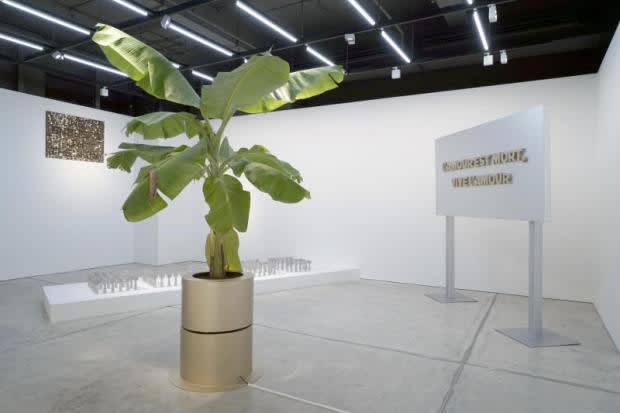An exhibition at Nova Contemporary is a clever exploration of troubling aspects of Thailand's past, with the artists unafraid to explore their own families' histories
In "Under The Same Sky", the latest exhibition at Nova Contemporary by photographer Tada Hengsapkul and artist Chai Siris, personal history and that of the world entwine. In no way does the show appear to strive at having these narratives untangled.
In many ways, works by both artists seem to constitute a united landscape back in time -- a landscape where photography contends with fading memory, where installation objects question the mainstream perception of history and where video works attempt to go back in time.
While many have known Tada through his nude photography, in this show it is another type of nudity altogether; the photographer strips bare his family history and lets viewers explore it in parallel with history on the larger scale.
Tada's subject is his hometown Nakhon Ratchasima in the 60s. Fear of communist threats and the insurgency which spread from the Lao Civil War led the Thai government to allow the US to use five Thai bases for the air defence of Thailand and to fly reconnaissance flights over Laos -- in his province it was Korat Royal Thai Air Force Base in Nakhon Ratchasima, from 1962-1975. This base was the largest front-line facility of the US Air Force in Thailand.
Tada's video installation Hidden Love, for instance, features a photograph of his aunt who married an American soldier during that time. Running in slow loop, the face of his aunt, with Tada adding chemical with a dissolving effect onto the photograph, gradually melts into nothingness. His aunt died around the same time that her lover, along with the United States Air Force, left Thailand. The family was reluctant to talk when asked about the cause of her death. Tada wonders if it was in fact self-inflicted, and his video has mournfully captured that mysterious and traumatic episode.
"With my previous works, I never questioned the context and history of the space where my photographs were taken," said Tada, who added the project started about three years ago. "It began with my aunt's story and with questions like, 'How come my dad can speak English?', and 'Why does he listen to The Doors, Black Sabbath and Led Zeppelin?'."
Tada began with a series of field trips and the words of the people who had lived through the era would lead him to several locations where, though traceless today, the air force's


